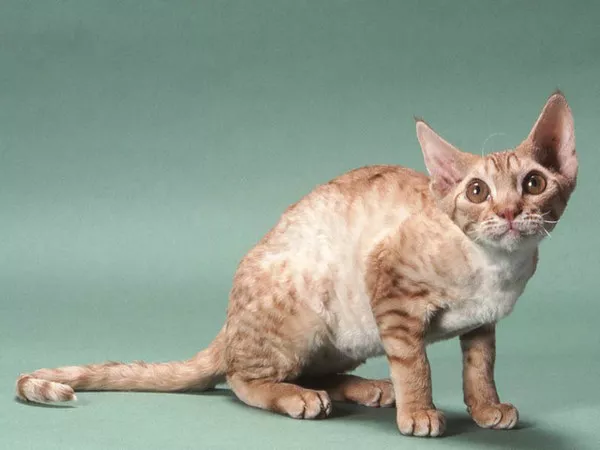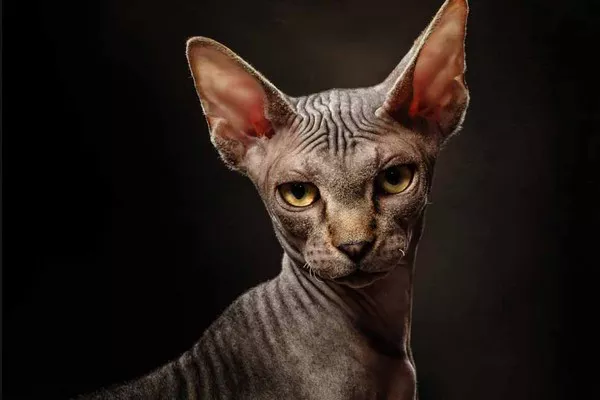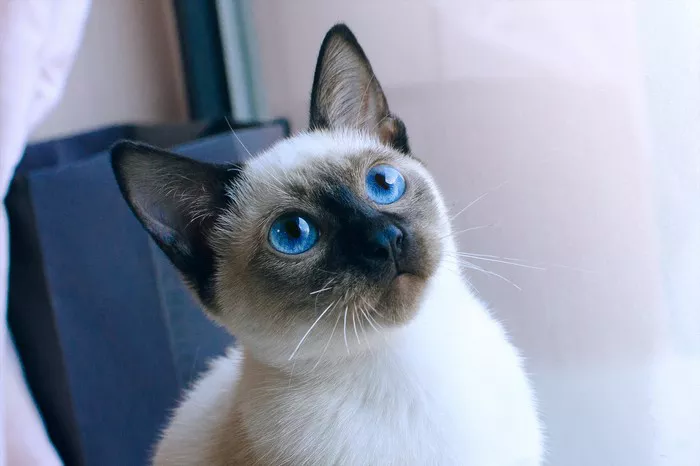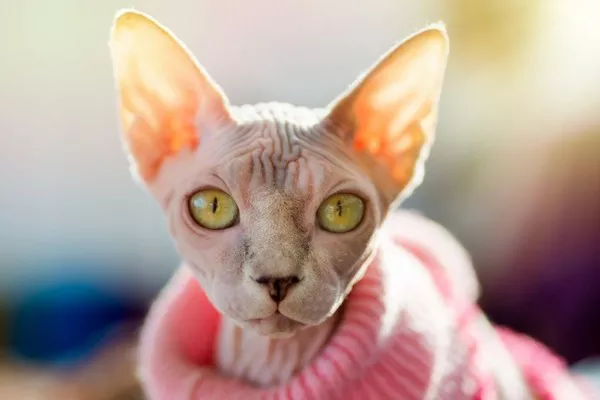Devon Rex cats, with their distinctive appearance and playful personalities, are a beloved breed among cat enthusiasts. Ensuring the well-being of these unique felines involves paying careful attention to their dietary needs. In this article, we will explore the factors influencing the dietary requirements of Devon Rex cats, shedding light on how much they should eat for optimal health.
Understanding the Devon Rex Breed:
Devon Rex cats are known for their striking appearance, characterized by large ears, a short curly coat, and a slender build. Their playful and affectionate nature makes them a popular choice among cat owners. However, like any cat breed, proper nutrition is essential to support their overall health and vitality.
Factors Influencing Dietary Needs:
Several factors contribute to the dietary needs of Devon Rex cats, and understanding these elements is crucial for providing appropriate nourishment. These factors include age, weight, activity level, health status, and whether the cat is spayed or neutered.
Age: The life stage of a Devon Rex cat plays a significant role in determining its nutritional requirements. Kittens, adult cats, and seniors have different dietary needs to support their growth, maintenance, and overall well-being.
Weight: The weight of a Devon Rex cat influences its daily caloric intake. Overweight cats may require a controlled diet to prevent obesity-related health issues, while underweight cats may need a more calorie-dense diet.
Activity Level: The energy expended by a Devon Rex cat through play and daily activities affects its caloric needs. More active cats may require a higher calorie intake to maintain their energy levels.
Health Status: Cats with specific health conditions, such as allergies, sensitivities, or chronic diseases, may have dietary restrictions or require specialized diets. Consulting with a veterinarian is crucial for managing these cases.
Spaying/Neutering: Altered cats, whether spayed or neutered, may have different metabolic rates and altered hormonal influences that can impact their nutritional needs. Adjusting the diet accordingly is important to maintain a healthy weight.
How Much Do Devon Rex Cats Eat: Kittens, Middle-aged & Elderly cats
Determining how much to feed a Devon Rex cat, regardless of age, involves considering various factors such as weight, activity level, and health status. Below are general guidelines for feeding kittens, middle-aged cats, and elderly cats, bearing in mind that individual variations exist.
Kittens:
1. Age 0-4 Months:
Breast Milk or Kitten Formula: For kittens up to four weeks old, mother’s milk or a suitable kitten formula is the primary source of nutrition.
Transition to Kitten Food: From around four weeks, start introducing high-quality kitten food softened with water. Gradually reduce water content as they adapt to solid food.
Frequent Meals: Kittens should ideally be fed small, frequent meals throughout the day, typically four to six times a day.
Portion Size: Follow the guidelines on the kitten food packaging, adjusting the portions based on the kitten’s weight and individual needs.
2. Age 4-8 Months:
Weaning Process: Continue to offer a combination of softened kitten food and dry kibble as the kitten’s teeth develop.
Regular Feeding Schedule: Maintain a consistent feeding schedule with three to four meals per day.
Portion Control: Adjust portion sizes based on the kitten’s growth rate, ensuring they are neither underfed nor overfed.
3. Age 8-12 Months:
Transition to Adult Food: Gradually transition to high-quality adult cat food, following the recommended guidelines on the packaging.
Meal Frequency: Reduce meal frequency to two to three times per day.
Portion Control: Continue to monitor portion sizes to prevent overfeeding as the kitten approaches adulthood.
Middle-Aged Cats (1-7 Years):
1. Regular Adult Feeding:
High-Quality Cat Food: Provide a balanced and nutritionally complete adult cat food.
Meal Frequency: Two to three meals per day is generally suitable for most adult Devon Rex cats.
Portion Sizes: Follow the guidelines on the cat food packaging, adjusting portions based on the cat’s weight, activity level, and overall health.
2. Monitoring Weight:
Weight Management: Regularly assess the cat’s body condition, adjusting portion sizes if weight management is necessary. Obesity can lead to various health issues.
3. Hydration:
Water Availability: Ensure a constant supply of fresh water to support proper hydration, especially if feeding dry kibble.
Elderly Cats (7+ Years):
1. Special Senior Formulas:
Senior Cat Food: Consider transitioning to a high-quality senior cat food formulated to meet the specific needs of aging cats.
Digestive Health: Senior formulas often include ingredients to support digestive health, joint function, and overall well-being.
2. Meal Frequency:
Multiple Small Meals: Older cats may benefit from more frequent, smaller meals to accommodate changes in metabolism and appetite.
3. Monitoring Health:
Regular Vet Checkups: Schedule regular veterinary checkups to monitor the cat’s health, address any age-related concerns, and adjust the diet as needed.
4. Hydration:
Encourage Water Intake: Since older cats may be prone to dehydration, encourage water intake and consider wet food to provide additional moisture.
5. Adjusting Portions:
Individual Needs: Adjust portions based on the cat’s individual needs, health status, and activity level. Some older cats may require fewer calories due to decreased activity.
General Guidelines for Feeding:
While individual requirements vary, some general guidelines can help cat owners determine how much to feed their Devon Rex cats:
Consult with a Veterinarian: Before making any significant changes to a cat’s diet, it is advisable to consult with a veterinarian. A professional can assess the cat’s overall health and provide personalized recommendations based on its specific needs.
Select a High-Quality Cat Food: Choosing a high-quality commercial cat food that meets the standards set by veterinary organizations is essential. Look for formulations that are appropriate for the cat’s life stage (kitten, adult, senior) and specific health requirements.
Follow Feeding Guidelines: Cat food packaging typically includes feeding guidelines based on the cat’s weight and life stage. These guidelines provide a starting point, but adjustments may be needed based on individual factors.
Monitor Body Condition: Regularly monitoring a Devon Rex cat’s body condition is crucial for ensuring it maintains a healthy weight. Adjust the portion sizes as needed to prevent obesity or weight loss.
Determining Portion Sizes:
To determine how much a Devon Rex cat should eat, cat owners can follow these general guidelines:
Caloric Requirements: The caloric requirements of a Devon Rex cat depend on factors such as age, weight, and activity level. Kittens and more active cats typically require more calories than sedentary adults or seniors.
Weight Management: For weight maintenance, a cat’s daily caloric intake should align with its energy expenditure. Cat owners can use online calculators or consult with a veterinarian to estimate their cat’s caloric needs.
Divide Meals: Dividing the daily portion into multiple meals throughout the day can help prevent overeating and provide a steady source of energy for the cat.
Adjust as Needed: Regularly assess the cat’s body condition, adjusting portion sizes as necessary. If weight gain or loss is observed, consult with a veterinarian to determine an appropriate course of action.
Considerations for Special Diets:
Certain situations may warrant special dietary considerations for Devon Rex cats:
Allergies or Sensitivities: Cats may develop allergies or sensitivities to specific ingredients. Identifying and eliminating these triggers from the diet can help alleviate symptoms.
Weight Management: Overweight cats may benefit from weight management diets, while underweight cats may require a higher-calorie diet. These adjustments should be made under veterinary guidance.
Health Conditions: Cats with specific health conditions, such as kidney disease or diabetes, may require specialized diets. Veterinary consultation is crucial for managing these cases.
Conclusion:
Nourishing a Devon Rex cat appropriately involves a thoughtful approach to its dietary needs. While general guidelines exist, individual factors such as age, weight, activity level, and health status play a crucial role in determining the optimal amount of food. Consulting with a veterinarian, selecting high-quality cat food, and monitoring the cat’s body condition are key steps in ensuring the well-being of these charming and unique felines. By providing tailored nutrition and attentive care, cat owners can contribute to the health and happiness of their beloved Devon Rex companions.



























